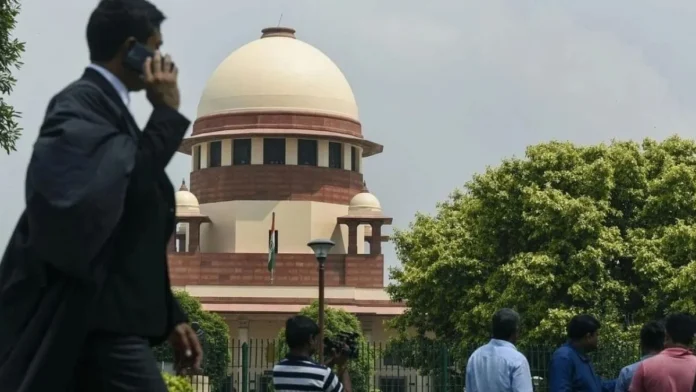The Centre has declared its intention to extend the tenure of Delhi Chief Secretary Naresh Kumar by six months. This decision has stirred controversy, especially in light of allegations of corruption against Kumar by the Aam Aadmi Party (AAP) government. The matter unfolded during a hearing in the Supreme Court, where the Centre reiterated its preference for Kumar, despite suggestions from the bench led by Chief Justice of India (CJI) questioning the rationale behind not considering a replacement.
The Centre, in its communication to the Supreme Court, affirmed its plan to extend Kumar’s tenure and outlined a unique approach for future appointments. The proposal involves presenting a panel of five senior Indian Administrative Service (IAS) officers to the Delhi Chief Minister, who would then have the authority to choose the new chief secretary from this pool. Despite this framework, the Centre remained steadfast in its support for Kumar, sparking questions from the bench regarding the necessity of retaining him in the face of corruption allegations.
More About The Delhi Chief Secretary’s Tenure Controversy:
During the hearing, the Supreme Court, led by the Chief Justice of India, questioned the rationale behind the Centre’s insistence on retaining Kumar. The bench suggested that the Centre could choose any senior IAS officer of its preference to lead Delhi’s bureaucracy, challenging the notion of a predetermined extension for the current chief secretary. This inquiry from the highest judicial authority raises concerns about the transparency and meritocracy in bureaucratic appointments.
The standoff between the Centre and the AAP government over the extension of Naresh Kumar’s tenure underscores the broader political tensions prevailing between the two entities. The issue also brings to light the delicate balance of power and decision-making autonomy that continues to be a point of contention between the Union government and states with special administrative status.
The Supreme Court’s intervention and inquiry into the matter add an additional layer of scrutiny, emphasizing the need for a fair and transparent process in the selection of key administrative officials. The outcome of this situation could have far-reaching implications for the relationship between the Centre and state governments, setting a precedent for future bureaucratic appointments in the country.


